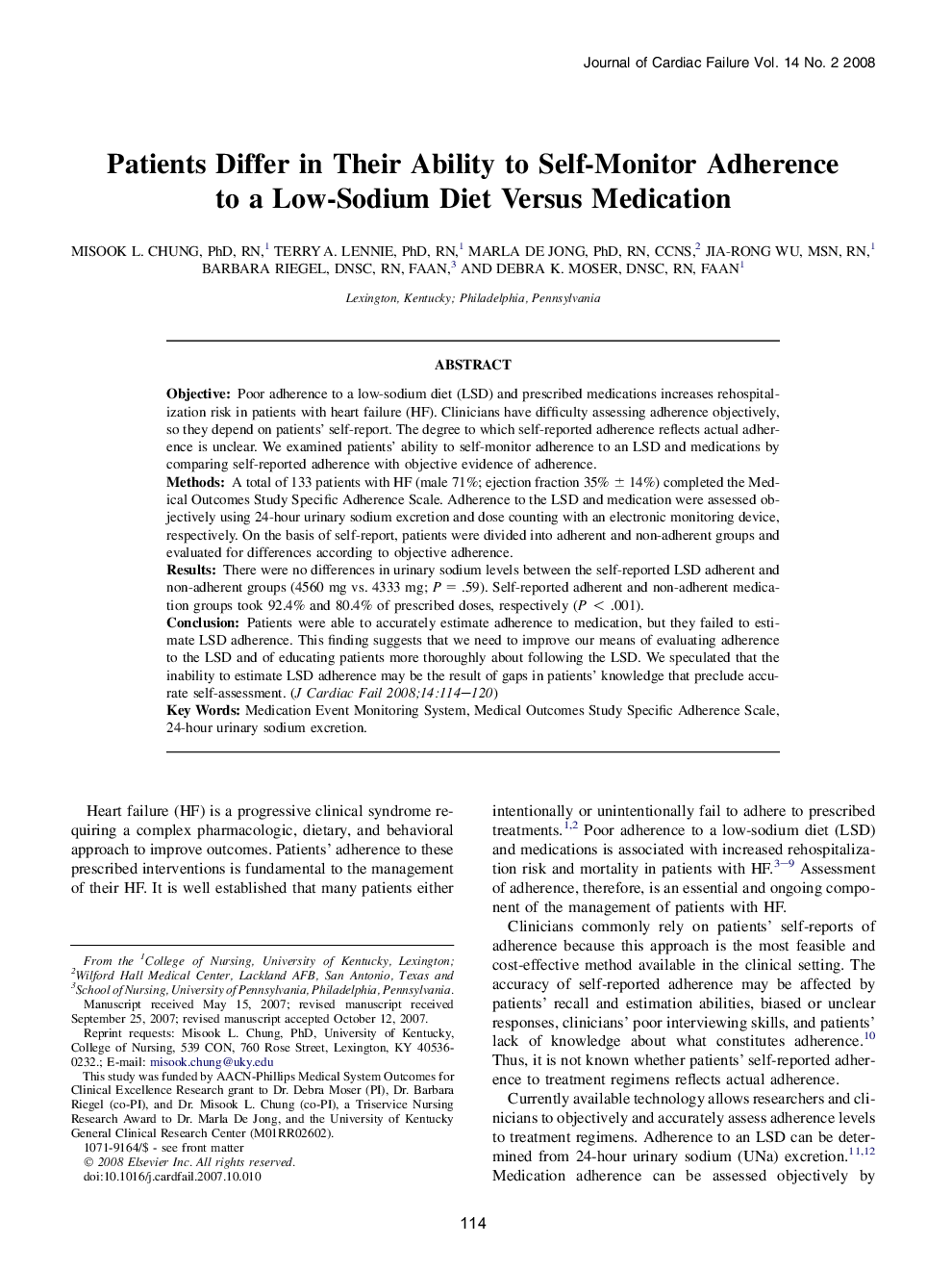| Article ID | Journal | Published Year | Pages | File Type |
|---|---|---|---|---|
| 2962280 | Journal of Cardiac Failure | 2008 | 7 Pages |
ObjectivePoor adherence to a low-sodium diet (LSD) and prescribed medications increases rehospitalization risk in patients with heart failure (HF). Clinicians have difficulty assessing adherence objectively, so they depend on patients' self-report. The degree to which self-reported adherence reflects actual adherence is unclear. We examined patients' ability to self-monitor adherence to an LSD and medications by comparing self-reported adherence with objective evidence of adherence.MethodsA total of 133 patients with HF (male 71%; ejection fraction 35% ± 14%) completed the Medical Outcomes Study Specific Adherence Scale. Adherence to the LSD and medication were assessed objectively using 24-hour urinary sodium excretion and dose counting with an electronic monitoring device, respectively. On the basis of self-report, patients were divided into adherent and non-adherent groups and evaluated for differences according to objective adherence.ResultsThere were no differences in urinary sodium levels between the self-reported LSD adherent and non-adherent groups (4560 mg vs. 4333 mg; P = .59). Self-reported adherent and non-adherent medication groups took 92.4% and 80.4% of prescribed doses, respectively (P < .001).ConclusionPatients were able to accurately estimate adherence to medication, but they failed to estimate LSD adherence. This finding suggests that we need to improve our means of evaluating adherence to the LSD and of educating patients more thoroughly about following the LSD. We speculated that the inability to estimate LSD adherence may be the result of gaps in patients' knowledge that preclude accurate self-assessment.
